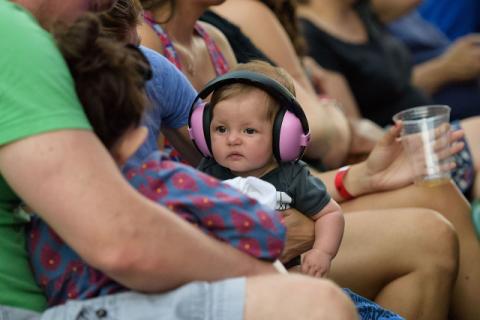Newborns Recognize Beats in Music, Suggesting Innate Musical Ability

Recent research conducted by scientists from the University of Amsterdam and the HUN-REN Research Centre for Natural Sciences in Hungary has shed light on newborns' remarkable ability to detect beats in music. This ability to perceive beats in music appears to be a separate cognitive mechanism present in newborns from birth.
Published in the scholarly journal Cognition, the study led by Professor Henkjan Honing, specializing in Music Cognition at the UvA, explores the innate capacity of newborns to discern a regular pulse in music, often referred to as the beat.
Building upon previous findings from 2009, the researchers sought to further explore this capability in newborns. Partnering once again, the research teams used a novel approach. In an experiment involving 27 newborn babies, the scientists manipulated the timing of drum rhythms to differentiate between statistical learning and beat perception.
Through headphone presentations of two versions of drum rhythms, one with consistent timing and the other with random intervals, brain wave measurements (EEG) were employed to gauge the newborns' responses while they slept. The results unveiled that newborns responded to a regular beat when the timing between sounds remained consistent. However, irregular intervals did not evoke a beat perception.
Co-author Professor Istvan Winkler highlighted, "The ability to hear the beat is an innate skill in newborns and not a learned sequence of sounds. This crucial difference emphasizes the significance of baby and nursery rhymes in fostering auditory development in young children."
Professor Honing further emphasized, "The perception of regularity in music might seem trivial, but it's fundamental. Recognizing beats allows us to dance and make...
- Log in to post comments
